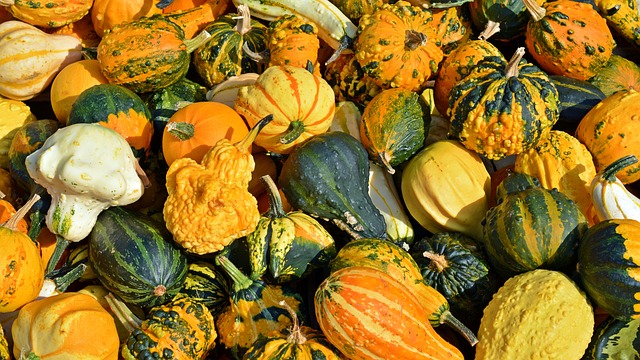Yard waste management is essential for ecological health, soil fertility, and sustainable community practices. It involves the collection and recycling of organic materials such as leaves and grass clippings through services like composting and mulching, which not only enhance the aesthetic appeal of neighborhoods but also mitigate fire risks and reduce environmental impact by preventing yard waste from ending up in landfills where it could contribute to methane emissions. These practices improve soil quality by returning nutrients and conserving moisture, which in turn supports plant growth and biodiversity. Yard Waste Removal and Recycling programs are designed to maintain clean and safe environments, promote sustainable living, and provide direct benefits to residents by enriching their soils and contributing to a healthier ecosystem. By utilizing these services, communities can enjoy the dual advantages of a visually pleasing landscape and environmentally responsible waste management.
Managing yard waste, particularly during seasonal changes, is a crucial aspect of maintaining a healthy landscape. This article delves into the practices and tools necessary for efficient leaf collection and mulching, key components in the recycling of yard waste. We’ll explore the roles these processes play in sustainable yard care, from understanding the composition of yard waste to local regulations that govern their management. Furthermore, we’ll examine strategies for effective yard waste removal, including both professional services and DIY composting methods. By integrating these practices into your routine, you can contribute to soil health, reduce landfill use, and promote environmental stewardship. Join us as we navigate the essentials of responsible yard waste recycling and how it can transform your garden’s vitality.
Understanding Yard Waste: The Role of Leaf Collection and Mulching

Yard waste, primarily consisting of leaves, grass clippings, and garden debris, plays a significant role in the health of ecosystems and soil fertility. Effective yard waste removal and recycling practices are essential for maintaining environmental balance and promoting sustainable landscapes. Leaf collection services are designed to efficiently gather and transport fallen leaves from residential areas to designated processing facilities. These services not only enhance the aesthetic appeal of neighborhoods by keeping lawns clear but also contribute to reducing the risk of fire hazards during dry periods. Moreover, leaf collection facilitates composting, which is a vital process for recycling organic matter back into the soil, thus enriching it with nutrients and improving its structure.
Mulching complements leaf collection by transforming yard waste into a valuable resource. Mulching involves shredding or decomposing leaves and other organic materials to create a protective layer over soil. This practice conserves moisture, suppresses weeds, and moderates soil temperature fluctuations. Additionally, as the mulched material breaks down, it enriches the soil with essential nutrients, which can enhance plant growth and resilience. Yard Waste Removal and Recycling programs that include mulching services offer a sustainable alternative to landfill disposal, reducing waste and promoting eco-friendly practices within communities. By integrating these services, residents can contribute to a healthier environment while also benefiting from the aesthetic and soil enrichment advantages of their yards.

Yard waste removal and recycling play a crucial role in maintaining the health and aesthetics of residential and commercial landscapes. As seasons change, leaves, grass clippings, and garden debris accumulate, which if left untended, can lead to soil compaction, nutrient imbalances, and impede water flow. Effective yard waste removal systems are designed to collect these organic materials, preventing them from becoming a nuisance. These systems often include designated collection containers or curbside pickup services that facilitate the separation of yard waste from other forms of trash. This not only enhances the cleanliness and orderliness of communities but also contributes to the sustainable practice of recycling organic matter back into the soil, thereby enriching it for future plant growth.
Recycling yards through composting and mulching is an environmentally friendly alternative to traditional disposal methods. Municipalities and private companies offer yard waste recycling programs that convert leaves and other organic materials into nutrient-rich mulch or compost. This processed material can then be returned to the landscape, improving soil structure and fertility. The benefits of these recycling initiatives extend beyond individual yards; they contribute to the reduction of methane emissions from landfills, conserve water by aiding in moisture retention in soils, and support biodiversity by providing habitats for beneficial organisms. Yard waste removal and recycling thus offer a sustainable and eco-conscious approach to managing yard waste, with positive implications for both the environment and community well-being.
Yard waste, including leaves and other organic materials, plays a significant role in ecosystem health and soil quality. Effective yard waste removal and recycling practices, such as leaf collection and mulching, are pivotal in maintaining green spaces and promoting environmental sustainability. These practices not only aid in the reduction of landfill use but also contribute to the creation of nutrient-rich compost, which can be utilized to enrich soil. As communities continue to implement these services, the benefits of yard waste removal and recycling will become increasingly evident, fostering healthier landscapes for generations to come. Homeowners and municipalities are encouraged to participate in and support yard waste removal and recycling programs to ensure a thriving environment.
